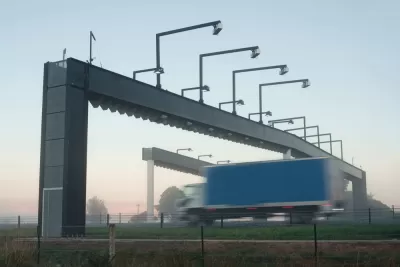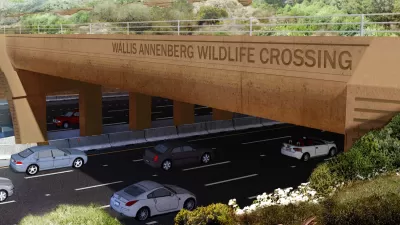'Big Brother' has long been voiced as a criticism of charging motorists by the mile driven, but in the ongoing Oregon road usage charge program, more than 75 percent of volunteer enrollees opted for a recording technology with GPS.

Privacy concerns were so important to the legislators writing the bill in 2013 to authorize the nation's first 'road usage charge' (also commonly referred to as a vehicle miles traveled or VMT fee or mileage-based user fee) program, now known as OReGO, that they required a "non-Global Positioning System (GPS)" option be included in the reporting methods volunteers could select when the program launched July 1, 2015.
According to July 1 data on the program supplied by Michelle D. Godfrey of the Oregon Department of Transportation, there are 849 "active volunteers" in the program. Prior posts on OReGO indicated that the program would enroll 5,000 volunteers, but Godfrey indicated that was the limit, and not a requirement.
"We didn’t really know what to hope for, since this has never been done before," Godfrey stated in an email. She added that the number was determined to be adequate for assessing the "purposes of a pilot project" and to demonstrate that "OReGO system could support a statewide implementation."
Technically, OReGO is not a pilot project, like the California Road Charge Pilot Program, which also allows up to 5,000 volunteers, because it has no end date. The California program lasts for nine months.
Legislators will be looking at the findings provided by the Oregon Department of Transportation (ODOT), which is administering the program, in their deliberations over a transportation funding package that begin next February. While the program is helpful in determining how motorists react to being charged by the mile driven as opposed to the gallon burned, ultimately the purpose is to fund transportation infrastructure.
As posted in April, "[Gov. Kate Brown] supported a four-cent gas tax increase last year, but it fizzled in the legislature, allowing the state to retain its low carbon fuel standard, known as the Clean Fuels Program, only the second state after California to have such a program."
Regardless of the findings from OReGO, it's clear that states will continue to be reliant on tried and true state gas taxes for the immediate future if they want to keep roads, bridges and tunnels in a state of good repair.
FULL STORY: Is Privacy Overrated as a Concern for Mileage Fees?

Pennsylvania Mall Conversion Bill Passes House
If passed, the bill would promote the adaptive reuse of defunct commercial buildings.

Coming Soon to Ohio: The Largest Agrivoltaic Farm in the US
The ambitious 6,000-acre project will combine an 800-watt solar farm with crop and livestock production.

World's Largest Wildlife Overpass In the Works in Los Angeles County
Caltrans will soon close half of the 101 Freeway in order to continue construction of the Wallis Annenberg Wildlife Crossing near Agoura Hills in Los Angeles County.

California Grid Runs on 100% Renewable Energy for Over 9 Hours
The state’s energy grid was entirely powered by clean energy for some portion of the day on 37 out of the last 45 days.

New Forecasting Tool Aims to Reduce Heat-Related Deaths
Two federal agencies launched a new, easy-to-use, color-coded heat warning system that combines meteorological and medical risk factors.

AI Traffic Management Comes to Dallas-Fort Worth
Several Texas cities are using an AI-powered platform called NoTraffic to help manage traffic signals to increase safety and improve traffic flow.
City of Costa Mesa
Licking County
Barrett Planning Group LLC
HUD's Office of Policy Development and Research
Mpact Transit + Community
HUD's Office of Policy Development and Research
Tufts University, Department of Urban and Environmental Policy & Planning
City of Universal City TX
ULI Northwest Arkansas
Urban Design for Planners 1: Software Tools
This six-course series explores essential urban design concepts using open source software and equips planners with the tools they need to participate fully in the urban design process.
Planning for Universal Design
Learn the tools for implementing Universal Design in planning regulations.























